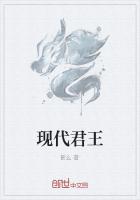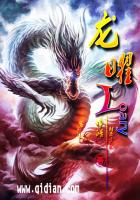The Tajiks have a population of about 33,000, being of European origin. They are concentrated in the Tashkurkan Tajik Autonomous County, east of Pamir, and a small number live in Shache, Zepu, Yecheng and Aketao. In the 11th century, their ancestors were convertedinto sect Ismail of Shiah, and they still abide by the law of this sect now. The Tajiks are engaged mainly in animal husbandry and farming. They have literature with a long historic tradition. “Shah Nameh” (book of kings)
by the famous Persianclassic poet Firdawsi stillspreads among them. As the Tajiks live on plateaus, their literature works always concern hawks.
6. The Tatars
The Tatars are the descendents of several Turki nomadic tribes subjected to the Turki Khanate Empire during the Tang Dynasty. Around the 1820"s and 1830"s, they moved to Xinjiangfrom the Sino-Russia border. Most of the Tatars are businessmen, while some are engaged in Islamic education in places such as Yining and Tacheng. The population of the Tatars is 5-6,000. Those of the Tatars living in city mainly engage in business,medical care and education, while the ones in the countryside are engaged in farming, especially beekeeping. The Tatars are comparatively well educated with the highest percentage of intellectualization among all the nationalities in China. The Tatar School in Yining is the earliest new type ethic school. The literature works of the Tatars are characterized by that of the Uighurs, Russians and Uzbeks. They are adept at singing and dancing, having many types of musical instruments.
7. The Huis
The ancestors of the Huis are the Arab and Persian Muslim envoys, traders and travelers who came and settled down in China in the period of the Tang and Song dynasties, who first brought Islam to China. As early as the beginning of the 13th century, many people in Central Asia came to China along with the Mongol army. They scattered all over the country as garrison troops, craftsmen, traders or scholars, being called Hui Hui then. The Huis began to use Chinese from the Ming Dynasty, but Imams still spoke Arabic when presiding over religious services and this tradition has been in practice up till now. The Huis are not considerably distinguished from the Hans in dress. The Huis in the countryside live mainly on farming and take commerceand handicraft industries as sideline industries, while the ones living in towns and cities are mainly engaged in small businesses such as catering trade, coat processing.
The Huis have a population of 8.6 million, being one of the minority groups with largest population and coverage. They are scattered almost in every province, city and autonomous region, while many more are concentrated in the Ningxia Hui Autonomous Region, Qinghai Province, Gansu Province, Shaanxi Province, the Xinjiang Uighur Autonomous Region, Yunnan Province, Hebei Province, Henan Province, Shandong Province and Inner Mongolia Autonomous Region. There is oneautonomous region, namely the Ningxia Hui Autonomous Region, two autonomous prefectures and eleven autonomous counties for the Huis in the whole country.
8. The Salas
The Salas live in the Xunhua Sala Autonomous County, Qinghai Province, with a population of 900,000. They have their own national spoken language, but no written language. Their ancestors were a branch of the Saruks who lived in the 13th century, belonging to the west Turki Oguz tribe in Samarkand. A chieftain named Kharmang led the clan men believing in Islam eastwards to Xunhua, Qinghai, and settled down there and lived and intermarried with the local Tibetans and Hans and multiplied, and becoming an ethnic group. The Salas are mainly engaged in farming and take animal husbandry and gardening as sideline industries. They have preserved much beautiful folklore. Duiwina (camel game), a traditional game showing how their ancestors came to Xunhua from Central Asia, is very popular among the Salas.
9. The Dongxiangs
The Dongxiangs live in the Dongxiang Autonomous Countyin Linxia prefecture of Gansu Province with a population of 370 thousand. The main body of their ethnic origin is Se Mu (one of the four classes into which China"s population was divided in the Yuan Dynasty, including Central Asian allies of the Mongols, mostly Uighurs and other Turks.) who came with the Mongol army to China in the 13th century and settled down in Dongxiang. They are also related to the Huis, the Mongols and the Hans in blood. There are comparatively more sects and Menhuans (Sufist sects in China) among the Dongxiangs, each having its own mosque. The doctrine and tradition of each sect and Menhuan isfully implemented in the daily life of the Dongxiangs. They still preserve very well the transcript of the Holy Qur"an brought from the Central Asia by their ancestors. The Dongxiangs are engaged mainly in farming. They are affluent in folklore, with epics “Miraqah and Girl Mazhilu” and “Pu Tao E Er” (grape moth)? Like the Huis, the Dongxiangs are fond of singing Hua"er (a kind of folk song, popular in Gansu, Qinghai and Ningxia)?
10. The Bao"ans
The Bao"ans are also called Bao"an Huis. They have their own national spoken language, but no written language. Theyare concentrated in Jishishan County in Linxia Prefecture with a population of 15,000. Their ancestors were the Mongols and the Hui Huis in Central Asia who came to China around the later period of the Yuan Dynasty and early Ming Dynasty. They were sent to garrison the frontier in Tongue, Qinghai at first, and settled down there and intermarried with the local Tibetans and Hans, and eventually became an ethnic group. There are mosques in every village where the Bao"ans live. They have similar customs to the Huis, Dongxiangs and Salas. The Bao"ans live on farming, and Bao"an Knife making is their traditional handicraft industry. They are dressed similarly with the Huis living in the Northwest.















